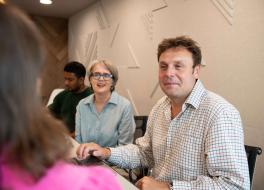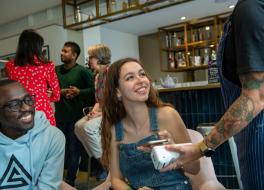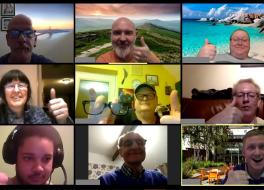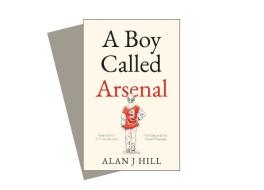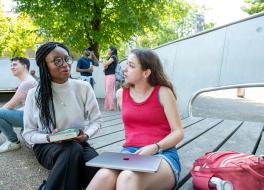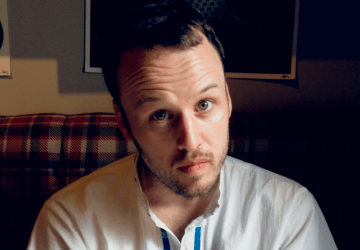

I had nothing to live up to at uni
Edwin Cruden talks about learning from his first experience at university to go easy on himself the second time round, and not having to live up to the imagined version of ourselves.
My impulse throughout school was to isolate myself from stressful environments, usually by simply not going or by spending as much time as possible in places I felt comfortable, like the Music and English departments. Being from a small, close-knit community, skipping school never got in the way of my social life outside of it, but obviously hampered my education. Doing the same thing during my first attempt at uni hampered both.
So many students are given the same advice: join a society! You’ll make friends! You’ll get a community! This advice always jarred, partly because my social communities had always existed despite — not because of — my experience of education, but also because the effortlessness with which those unencumbered with dysfluency seemed to navigate those first meet-ups, the public introductions, the finding the way to an un-signposted room in some labyrinth by asking thirty separate strangers. It’s not easy to build a community when you’ve already convinced yourself you can’t be part of one.
Nothing to live up to
Absolutely the most helpful realisation I made in my first few days of my second attempt at uni was, because I knew nobody: nobody knew me either and therefore I had no-one, and nothing, to live up to. I could, if I wanted, be whoever I wanted to be. In the end I chose me.
But this realisation really did so much for me. I’d previously been ‘me-with-a-stutter’, me with a wriggling mark of shame, twisting and distorting my experiences and relationships. Now I was just me. For some reason, experiences and relationships thereafter suffered virtually no sabotage from my stutter whatsoever. I, hesitantly, joined the Italian Society and within two years, was clumsily speaking another language in another country.
I could, if I wanted, be whoever I wanted to be. In the end I chose me.
My second attempt at uni was always going to be interesting as I’d made a decision to study a language, mainly for family reasons. I’d never claim doing a language was some magic bullet, and there were times I’d dread going in — I definitely missed more classes than other students. But putting myself in those situations despite my stutter, rather than not putting myself in the situation because of my stutter, did end up forcing me to deal with dysfluency in a far more pragmatic, unemotional way.
Language classes are also good places to meet people who are likely to be friendly, communicative, open-minded and welcoming. My community built quickly from there — the Italian society would meet on Thursdays in the same pub that people from my other classes would meet and, inevitably, friendship groups blended, merged and cross-pollinated.
The imagined version of ourselves
So much of stuttering is struggling with the stutter itself. So much of living with a stutter is struggling with yourself. I think a lot of us like imagining 'ourselves-without-a-stutter', ourselves who’d be able to do things that everyone else can. The longer we live with this person, the easier it is to miss the possibility that this person is often who we think other people wish we were: the parents gazing at us with love (but frustration on our behalf), the friends, as the language teacher reaches us, looking at the floor (in embarrassment on our behalf).
It’s even easier to miss the reality that often the person we imagine gazing at us or the floor with frustration and embarrassment on our behalf is, in fact, this same imagined version of ourselves-without-a-stutter.
So much of stuttering is struggling with the stutter itself.
Realising, and deciding, I had no one to live up to, must have, somewhere in there, meant I didn’t have to live up to the imagined version either. Writing this, I realise I haven’t thought about him for some time. I kind of feel bad for him!
Anyway, the only advice I’d give is try not to be harsh to yourself. Don’t want to go out one night when other people are? Don’t go out. Pay no attention to anyone who makes you feel bad for making that decision. A real friend, or someone who could come to be one, will respect your decision. I certainly found that the more people like this I kept around me, the healthier my experience of uni, and friendship, quickly was.
On the other hand, like the idea of joining a society but feeling your learned impulse to isolate yourself instead? As harsh as it might read, try telling yourself this: you can come back to it if it doesn’t work out — why not give yourself the chance? It might even work out fine but you don’t want to go back anyway! That’s fine too! But try not to be harsh to yourself. No-one has ever been as harsh to you as you have. You are fine. You might not realise it for a good while. But you honestly are.







